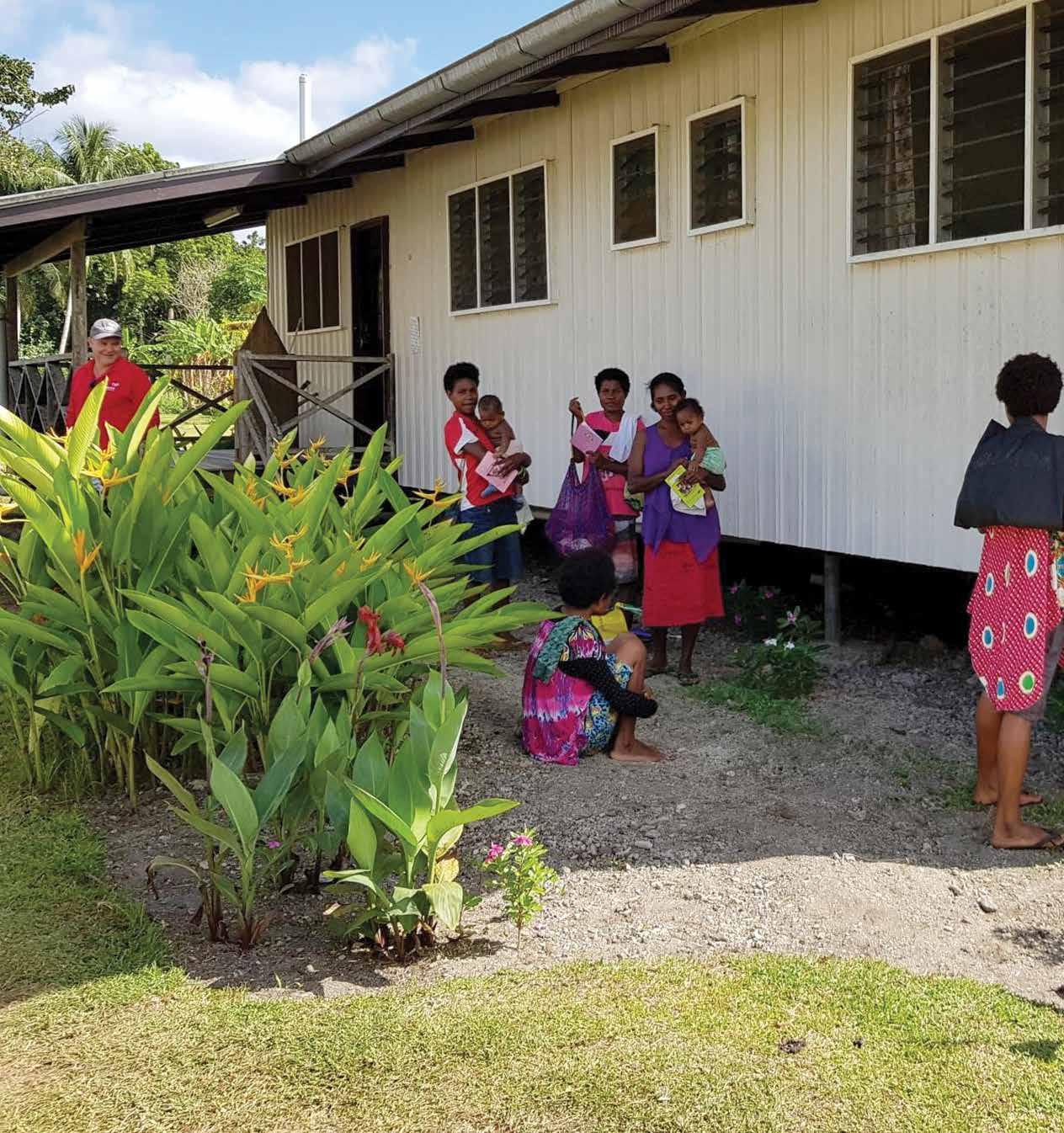
4 minute read
Papua New Guinea
Cabrini Outreach Annual Report 2020-21 International development
Despite its proximity to Australia, Papua New Guinea (PNG) faces significant global development challenges. The health system is under-resourced and deteriorating and maternal and child health outcomes are the worst in the Pacific region. Given Papua New Guinea’s close historical connection to Australia, we feel particularly called to reach out to our nearest neighbour. We have supported health-related programs in PNG for nearly two decades, with our strongest relationships in Madang Province. During the past year we continued our partnership with the government-owned Madang Provincial Hospital, as well as Catholic Church Health Services (CCHS) in the Archdiocese of Madang to support primary health.
Unfortunately, with the travel restrictions in place during the last financial year, on-ground support and contribution proved more difficult than usual. It became physically impossible to get our surgeons, nurses and biomedical experts to PNG for the service and education program and biomedical visit. As a result, these services could not take place, and our work in PNG moved away from on-ground support and towards capacity strengthening. From afar, we maintained communication with our partners and were able to contribute in other ways.
This included the establishment and funding of a cervical cancer screening program at Madang Provincial Hospital, tabled and accepted in conjunction with funding from the Kirby Institute. Funding for a registered nurse for this program was proposed and accepted, and a total contribution of $80,000 was provided to them in March 2021.
In May 2021, thanks to the generosity of the Pacific Development and Conservation Trust, we were able to secure funds to source and purchase a much-needed autoclave machine and a vaccination fridge, and ship them to our partners at Malala Health Clinic for their internal and outreach health services. This donation will allow for better management, implementation and provision of vaccinations — including for COVID-19. As the COVID-19 pandemic has begun to affect the people of Papua New Guinea more severely, we hope with this equipment they will be able to strengthen their maternal and child health programs in the Malala region.
Finally, our Histopathology Service with Modilon Provincial Hospital continued over the year — a pro-bono service which we have been engaged with since 2014. Pathology specimens from the hospital were couriered to Melbourne for testing, with results able to be reported and sent back within 13 days. This continues to be a vast improvement on the turnaround previously experience through their in-country service, which was approximately six months to two years.
Cervical cancer research in PNG
Up to 93 per cent of cervical cancers are preventable. A combination of vaccination and screening has halved the rate of diagnoses and deaths for Australian women since 1991 and increased five-year survival rates to 74 per cent. For the women of Papua New Guinea however, the story is vastly different. PNG has among the highest estimated burden of cervical cancer cases and deaths globally. Cervical cancer is the most common cancer diagnosis for females in PNG, and more than 1000 women die from the disease each year.
Fortunately, a doctor in PNG has taken up the fight against this insidious disease and, together with the PNG Institute of Medical Research (PNGIMR) and the Kirby Institute at UNSW Sydney, we’re doing all we can to back him. Dr John Bolnga sees the best and the worst of life for women in PNG. As the Head of Obstetrics and Gynaecology Services at the provincial referral hospital in Madang Province, Dr Bolnga has chosen to dedicate his life to improving outcomes for women and girls in PNG. This includes tackling cervical cancer — a cancer that the World Health Organisation is seeking to eliminate globally by 2030.
In 2012, a partnership was formed between Dr Bolnga, Dr Andrew Vallely from PNGIMR and the Kirby Institute, and Professor Glen Mola from the University of PNG, to carry out research on cervical cancer in PNG. The research program was designed to determine whether a new method of screening could identify and treat women with cervical pre-cancer to reduce the high rates of mortality from cervical cancer. The research found the new ‘test and treat’ method was able to appropriately treat at least 95 per ent of all women with high-grade disease, which was a substantially better result than other screening methods currently used in countries with low medical resources.
We have worked with Madang Hospital, PNG since 2005 to strengthen health services in the Province, and so we have been thrilled to see the results of this cervical cancer research. We are hopeful as the research transitions into an ongoing screening program that we will soon start to see declining cervical cancer mortality rates in PNG, consistent with our aim to improve the health of women and children in low resource countries.
Above: Clients waiting for maternal and child health services at Malala Clinic, PNG








